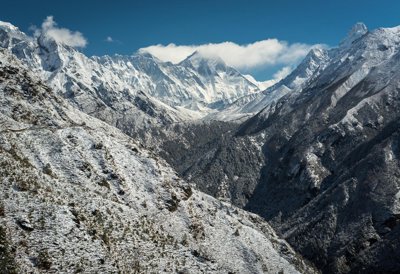How did you get to where you are now?
I studied BSc Environmental Geography at the University of York. During that time I volunteered as a Green Impact Auditor, and undertook a two month internship at the Stockholm Environment Institute (on the York campus). After graduating I decided to apply for a MSc in Sustainability and Consultancy at the University of Leeds, and in the interim worked in a few retail jobs to save up for my fees/living costs. As part of my MSc, in the third semester, I undertook a three month placement within Arup’s Leeds and Manchester offices working for its infrastructure team to carry out a research project for my thesis. Towards the end of my placement I applied for a separate role in Arup’s Sustainable Building Design team in London, and was successful.
What do you do as part of your role?
I’m currently working in Arup's Sustainability team, within its Building Engineering group in London. Broadly my role involves supporting clients with achieving their sustainability aspirations – either through their own internal targets, developing more bespoke corporate or master plan strategies and delivering third party ratings such as BREEAM, LEED and WELL. I work in a multi-disciplinary office preparing sustainability assessments in coordination with the sustainability team as well as internal and external architects, engineers, contractors and clients for projects across a wide range of markets. A typical week could involve attending meetings with project teams to discuss progress and actions, getting in touch with team members to ask for inputs for the assessments, writing reports and collecting or validating evidence, and delivering sustainability vision workshops to get different disciplines engaged in the subject.
What skills and characteristics do you need for this role, apart from geographical knowledge?
Strong communication skills are key – the role demands an ability to communicate what is required, in what format and when by different disciplines in a clear and concise manner. It also requires a level of persuasion to encourage people to go above and beyond what is required. There is also a high level of creativity involved in how to approach different sustainability issues, assessing different approaches to projects with varying needs and budgets. Project management skills are also imperative as there is a high level of responsibility very early on in this career path.
How does geography feature in your work/what difference does it make?
Geography doesn’t explicitly feature in my work, although studying geography did equip me with a broad way of thinking and an appreciation for a systems thinking approach. This is particularly important in my role as I’m working on projects with many disciplines, so having a basic appreciation of their viewpoints is valuable.
What do you enjoy most about your job?
I enjoy the variety of my work. I’m often working on between five to seven projects at the same time, at different scales and stages of development, across different markets. This means I’m able to gain an appreciation for many different sustainability issues and their associated challenges and opportunities. I recently worked on closing out a sustainability assessment for an iconic skyscraper in Central London, which involved a site visit where I got to see the specific interventions working to contribute to reducing the building’s environmental impact. Having a tangible output is a very satisfying aspect of the role.
What advice would you give to someone wanting to go in to this career?
Always look for opportunities to gain relevant industry experience - this doesn’t have to be at a company, for instance if your university course involves team working on small projects. Being able to demonstrate times when you’ve applied your knowledge and understanding is very valuable, and experiencing working in teams – especially multi-disciplinary ones – is hugely beneficial.
How do you maintain your knowledge and interest in geography outside of work?
I’m a member of the Institute of Environmental Management and Assessment (IEMA) which means I receive a copy of its Transform magazine every month which keeps me in the loop with everything that’s going on in the industry. Beyond that, I’m an avid watcher of documentaries which have a geography focus, and I also love to travel and get out in nature.
Why did you choose geography? Why should others choose geography?
I chose geography at an early age based on my interest in the natural world. The growing issue and narrative around climate change fostered my interest and pushed me into the field of sustainability – which has opened up a broad range of opportunities. In the efforts to tackle climate change, having people who understand a broad range of issues and apply holistic, systems thinking is incredibly useful as the solutions that are required involve many disciplines that are inextricably linked.
* This interview was undertaken in 2019 and was correct at the time of publication. Please note that the featured individual may no longer be in role, but the profile has been kept for career pathway and informational purposes.

